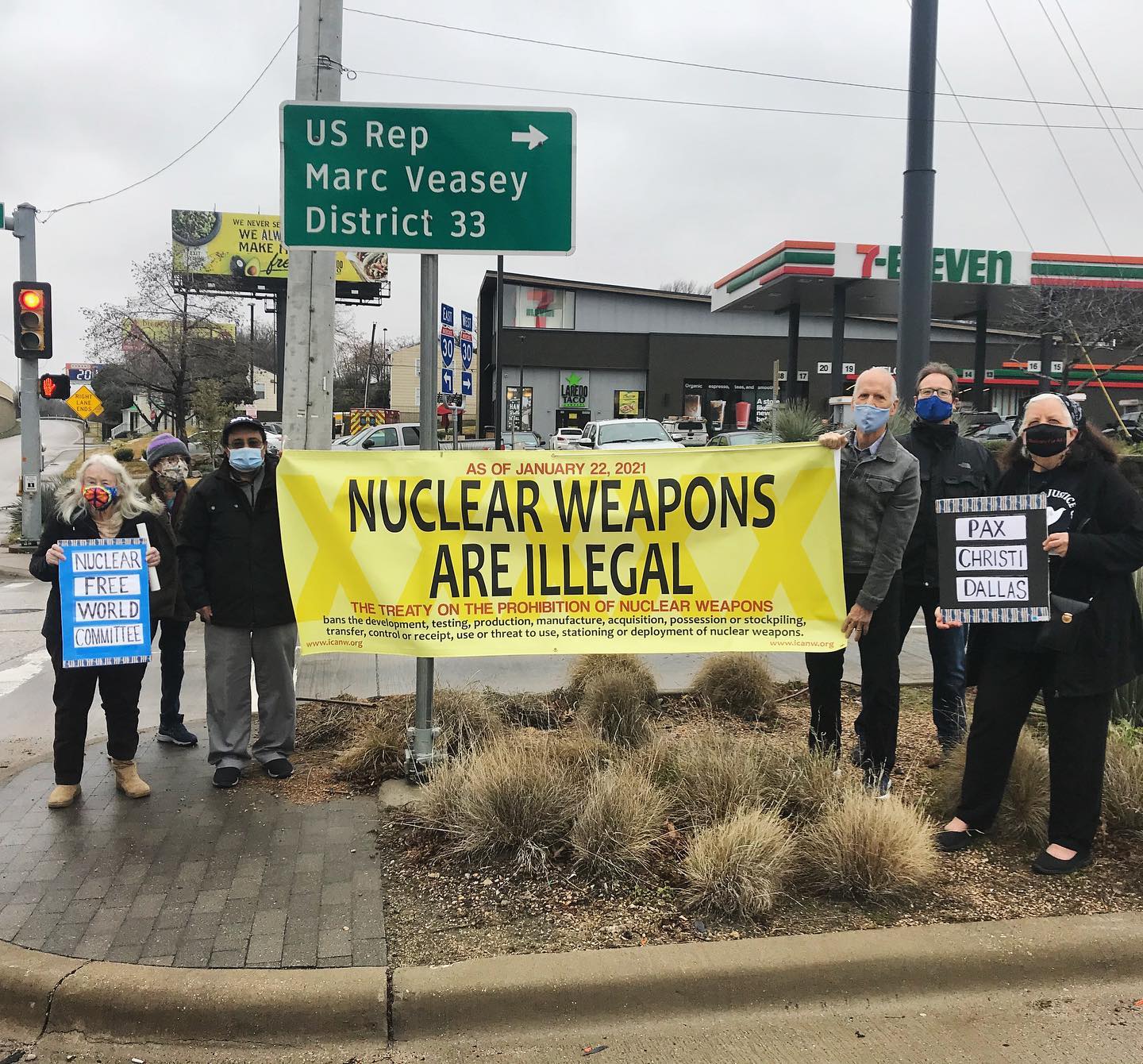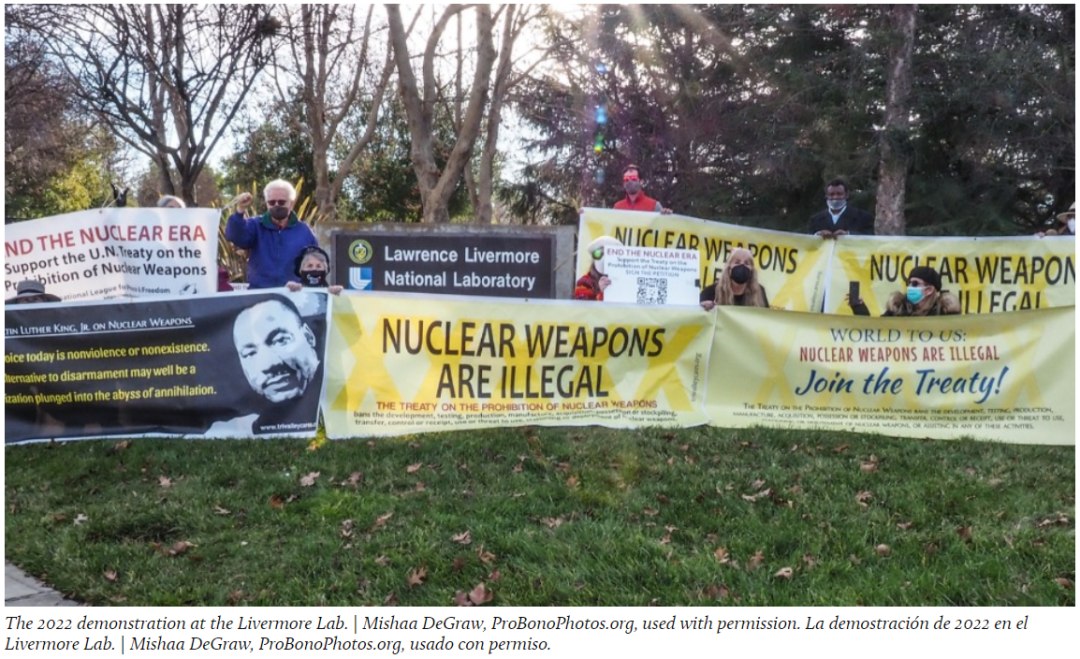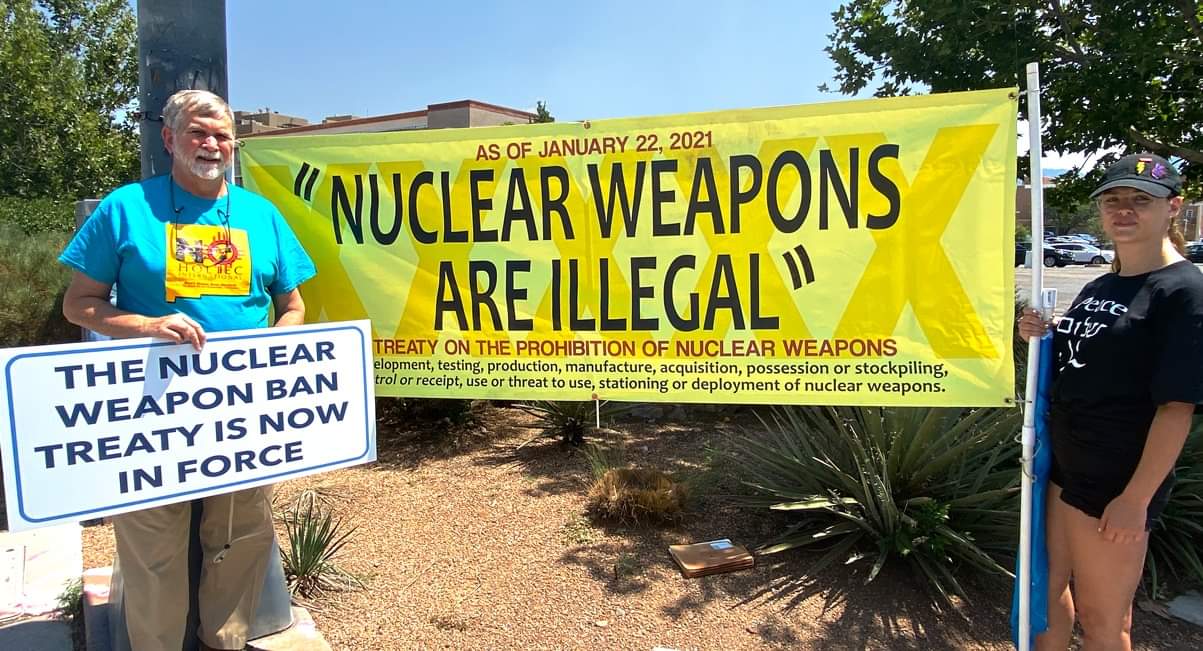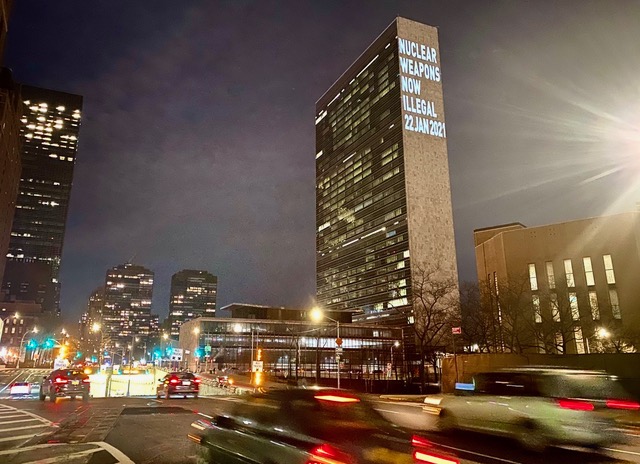Nuclear Weapons
It is such a supreme folly to believe that nuclear weapons are deadly only if they’re used. The fact that they exist at all, their presence in our lives, will wreak more havoc than we can begin to fathom. Nuclear weapons pervade our thinking. Control our behavior. Administer our societies. Inform our dreams. They bury themselves like meat hooks deep in the base of our brains. They are purveyors of madness. – Arundhathi Roy
Nuclear Weapons are Costly
Latest Weapons News from our Members
This Weekend: #NoMoneyForNuclearWeapons
By Tri-Valley CAREs Use your social media to amplify this internationally coordinated message! The global action runs through Sunday, September 22 (or Monday, if you need the extra day). Coordinated by ICAN, the International Campaign to Abolish Nuclear Weapons, the...
2023 DC Days Ask Report: Break the Cycle for a Safer Future and Two-Pager Recommendations to Congress
MEDIA ADVISORY: WHAT TO LOOK FOR IN THE U.S. DEPARTMENT OF ENERGY’S FY 2024 NUCLEAR WEAPONS AND CLEANUP BUDGET REQUEST
The Biden Administration is releasing its Fiscal Year 2024 federal budget on Thursday, March 9. It is expected to be a “skinny budget” with just topline financial numbers. If the pattern of the last few years for the Department of Energy’s (DOE’s) budget is continued,...
2022 DC Days Ask Report
Our DC Days 2022 Ask Report is out now! Alliance for Nuclear Accountability groups focus on: Stopping new nuclear weapons design, engineering, production, and testing activities. Addressing challenges from cleanup and waste management, processing, storage, and...
Full Event Recording: Bob Alvarez Lifetime Achievement Award Party
View above the live recording of the Alliance for Nuclear Accountability (ANA) and Nuclear Information and Resource Service (NIRS) honoring Bob Alvarez with a Lifetime Achievement Award on Saturday, March 19, 2022! Also take a look at this kudoboard where we've...
DOE Consent for Interim Storage Starting (AGAIN)!
The Department of Energy's Federal Register has the attached announcement of a public comment period through March 4, 2022 for consent-based siting of spent fuel storage. Stay tuned for sample comments from ANA and our member groups. View: Notice of Request for...
National Network of Groups at Contaminated Nuclear Weapons Sites Calls for New Leadership to Head Environmental Management at U.S. Department of Energy
Today, more than thirty nuclear watchdog organizations sent an urgent letter to U.S. Energy Secretary Janet Granholm and the White House, noting that she and the Biden administration face a critical decision that will have far-reaching environmental justice...
MEDIA ADVISORY: WHAT TO LOOK FOR IN THE U.S. DEPARTMENT OF ENERGY’S FY 2022 NUCLEAR WEAPONS AND CLEANUP BUDGET REQUEST
For use with DOE’s scheduled budget release on Friday May 28, 2021 For more information, key contacts are listed below. The White House is releasing its detailed Fiscal Year 2022 budget on Friday, May 28. A so-called “skinny budget” was released on April 9 that...
Nuclear Ban Treaty EIF slideshow 🎉
Nuclear Ban Treaty EIF slideshow from the Nuclear Resister on Vimeo.
Treaty Seeks End to Nuclear Madness
On January 22, the Treaty on the Prohibition of Nuclear Weapons will enter into force. The treaty bans the development, production, possession, deployment, testing, use and just about anything else you can imagine related to nuclear weapons. Fifty years later, nine nuclear-armed militaries possess more than 13,000 nuclear weapons, arsenals that mock their claimed commitment to disarm “at an early date.”
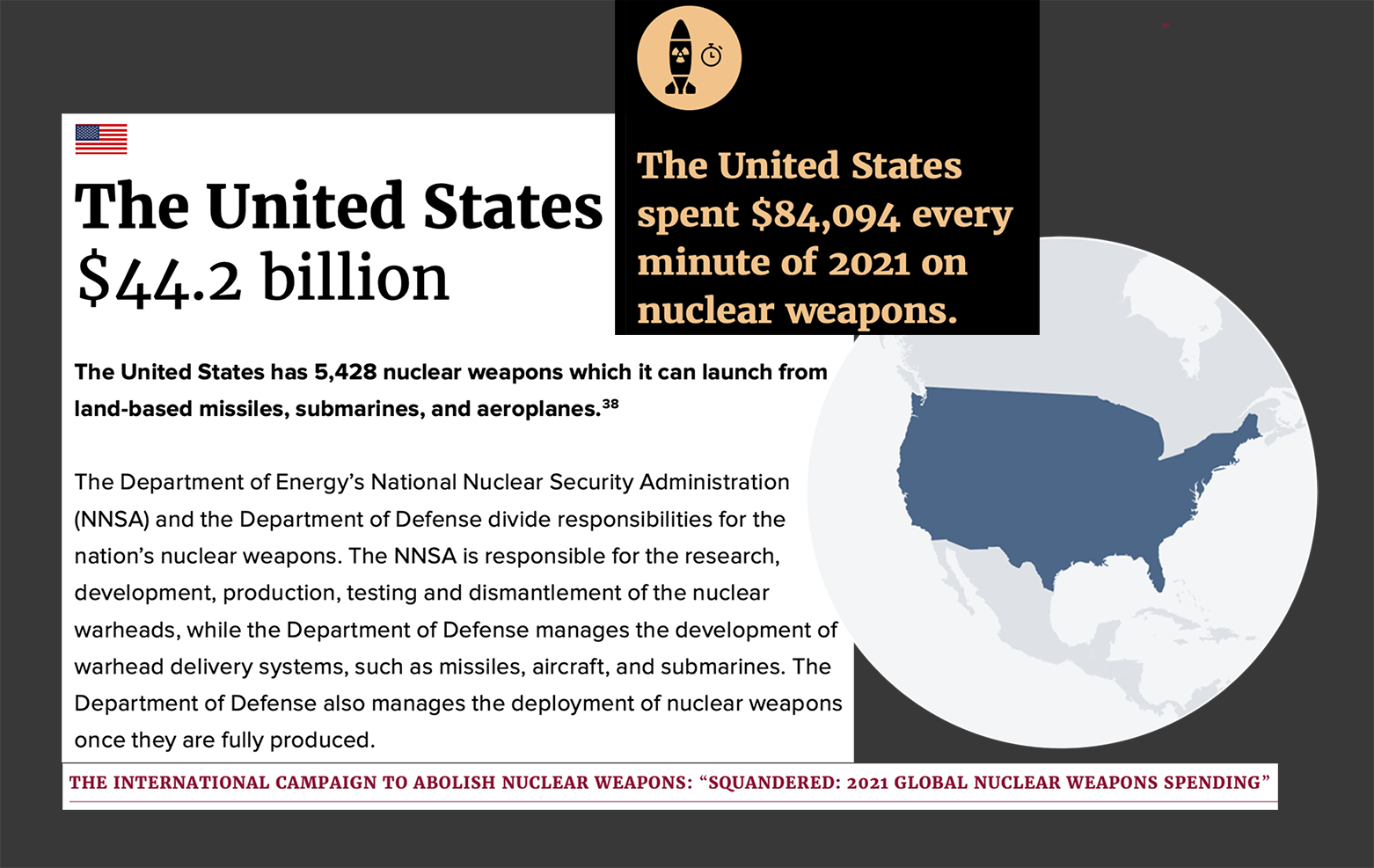
The U.S. is on track to spend between $620 billion and $661 billion on nuclear weapons and related programs over the next decade. Escalating costs associated with so-called “modernization” plans are forcing Congress to divert funds from essential programs like education, health-care, and job training to invest in a force that is bloated and dangerous. These expensive plans are plagued with cost overruns and are ridiculed by watchdog groups for their poor management.
As we negotiate bilateral and multilateral treaties to reduce the nuclear threat, the U.S. can not send the wrong message by spending unprecedented amounts on our nuclear arsenal. With the situation worsened by the Russian invasion of Ukraine in 2022, it is no longer apparent that the U.S. views disarmament as a priority. We continue to create distrust with escalating spending on the nuclear arsenal. Urge Congress to reduce spending on unwise Life Extension Programs and invest in our economic competitiveness.
Learn more about Life Extension Programs here
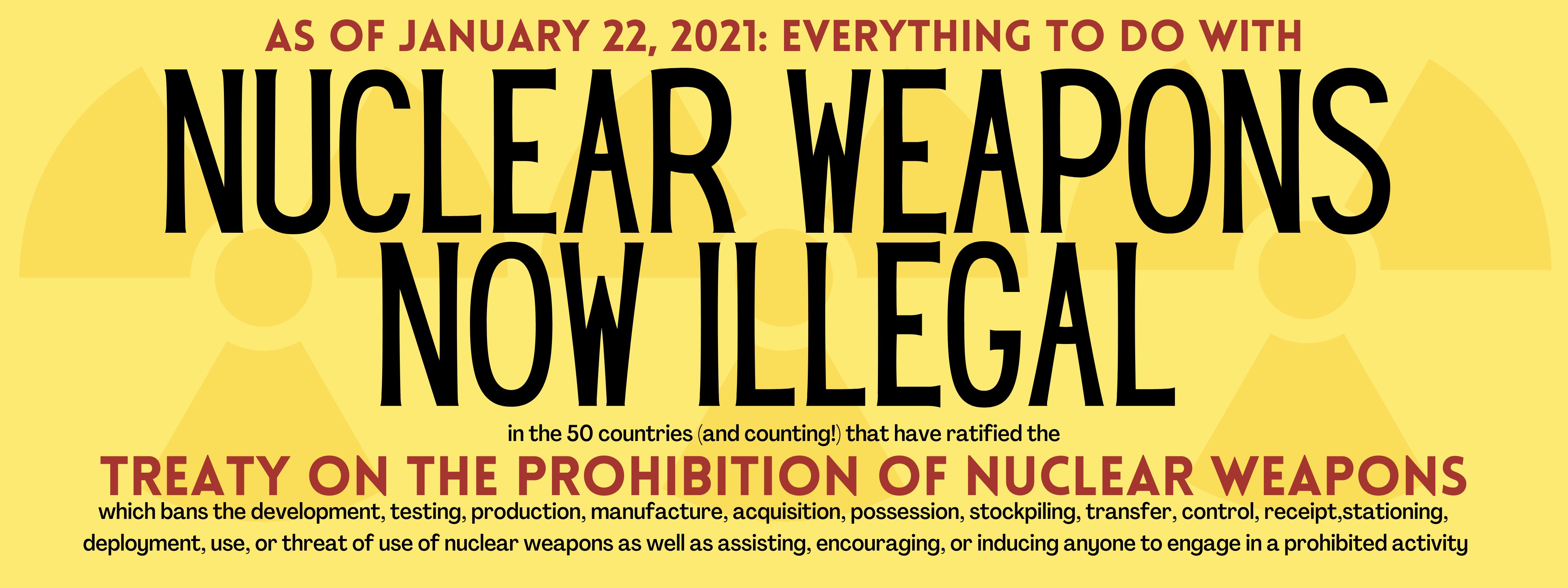
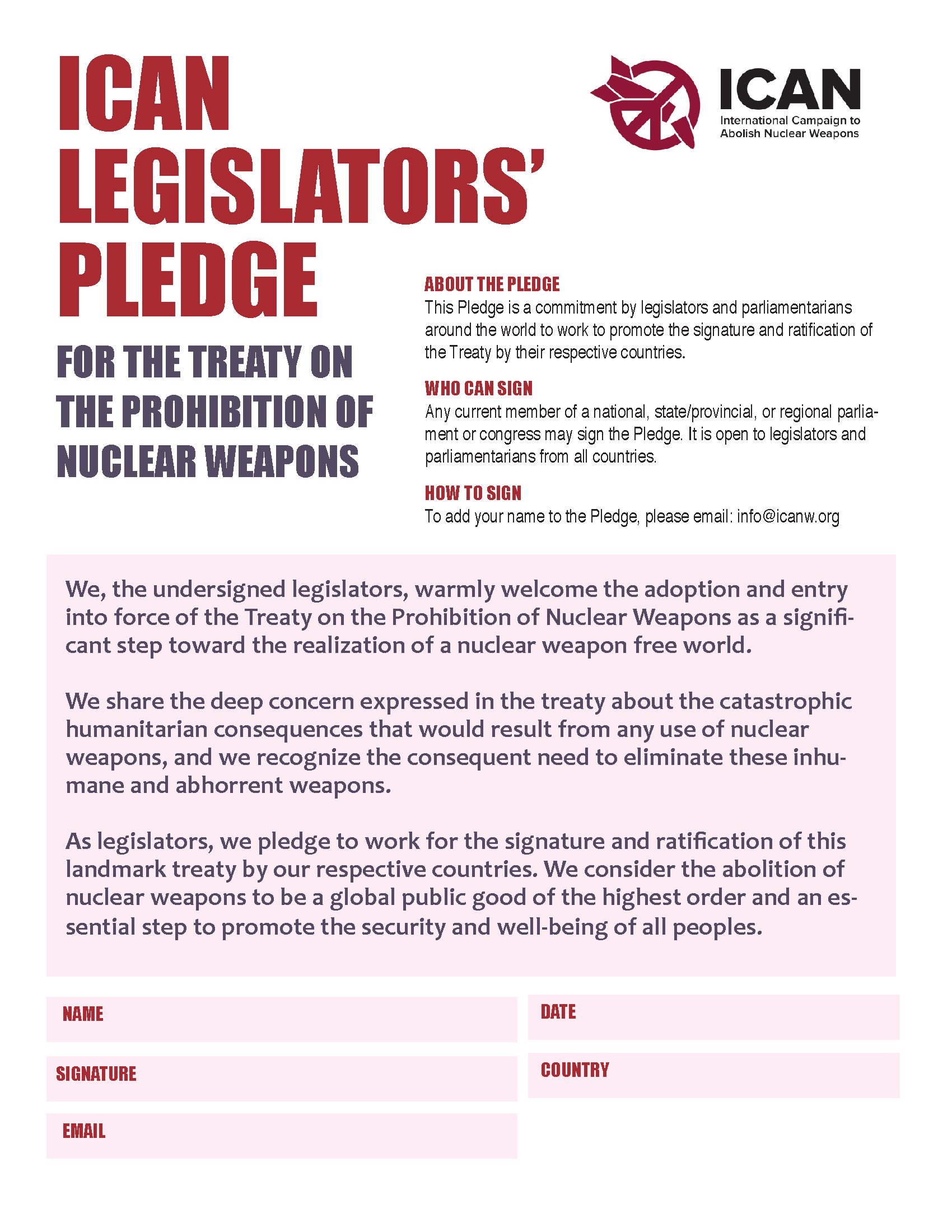 Nuclear Ban Treaty: Resources & More Info
Nuclear Ban Treaty: Resources & More Info
THE U.N. TREATY ON THE PROHIBITION OF NUCLEAR WEAPONS
On 7 July 2017 – following a decade of advocacy by ICAN and its partners – an overwhelming majority of the world’s nations adopted a landmark global agreement to ban nuclear weapons, known officially as the Treaty on the Prohibition of Nuclear Weapons. It entered into legal force on January 22nd of this year, 2021, when the first 50 nations signed and ratified it.
Prior to the treaty’s adoption, nuclear weapons were the only weapons of mass destruction not subject to a comprehensive ban, despite their catastrophic, widespread and persistent humanitarian and environmental consequences. The new agreement fills a significant gap in international law.
It prohibits nations from developing, testing, producing, manufacturing, transferring, possessing, stockpiling, using or threatening to use nuclear weapons, or allowing nuclear weapons to be stationed on their territory. It also prohibits them from assisting, encouraging or inducing anyone to engage in any of these activities.
International Arms Control Cooperation is Building
Over the past century, world governments have increasingly looked to create laws that govern the conduct of nations in war. The institutions that work to verify these international agreements have become robust and the rules enabling their ability to provide verifiable oversight have also been strengthened. Today, the international community has over 330 international monitoring stations that provide rapid data if any country attempts to test nuclear weapons (a step in developing a nuclear weapons program). Any international agreement that would move us closer to abolition would also include robust on-the-ground inspections using lessons learned from the process the U.S. and Russia have developed over years of nuclear arms control cooperation. The alternative to serious nuclear disarmament efforts is the status-quo where countries will continue to develop nuclear weapons programs over time and we will increasingly face a world that teeters on the brink of nuclear war.
Nuclear Weapons Humanitarian Consequences are Catastrophic
Nuclear weapons are unique in their destructive power and the threat they pose to the environment and human survival. They release vast amounts of energy in the form of blast, heat and radiation. No adequate humanitarian response is possible. In to the nuclear winter scenario that many are familiar with, Physicians for Social Responsibility (PSR) studied how a regional nuclear war involving around 100 Hiroshima-sized weapons would disrupt the global climate and agricultural production so severely that more than a billion people would be at risk of famine.
In an International Physicians for the Prevention of Nuclear War report, Zero is the Only Option, experts from PSR and around the world analyzed several scenarios concerning the use of nuclear weapons. From a medical perspective, the aftermath of a nuclear attack makes any effective medical responsible infeasible. The resulting conclusions describe a level of catastrophic harm that must compel all to act to abolish these weapons.
Learn more about the humanitarian consequences of nuclear weapons at PSR and at the International Campaign to Abolish Nuclear Weapons.



